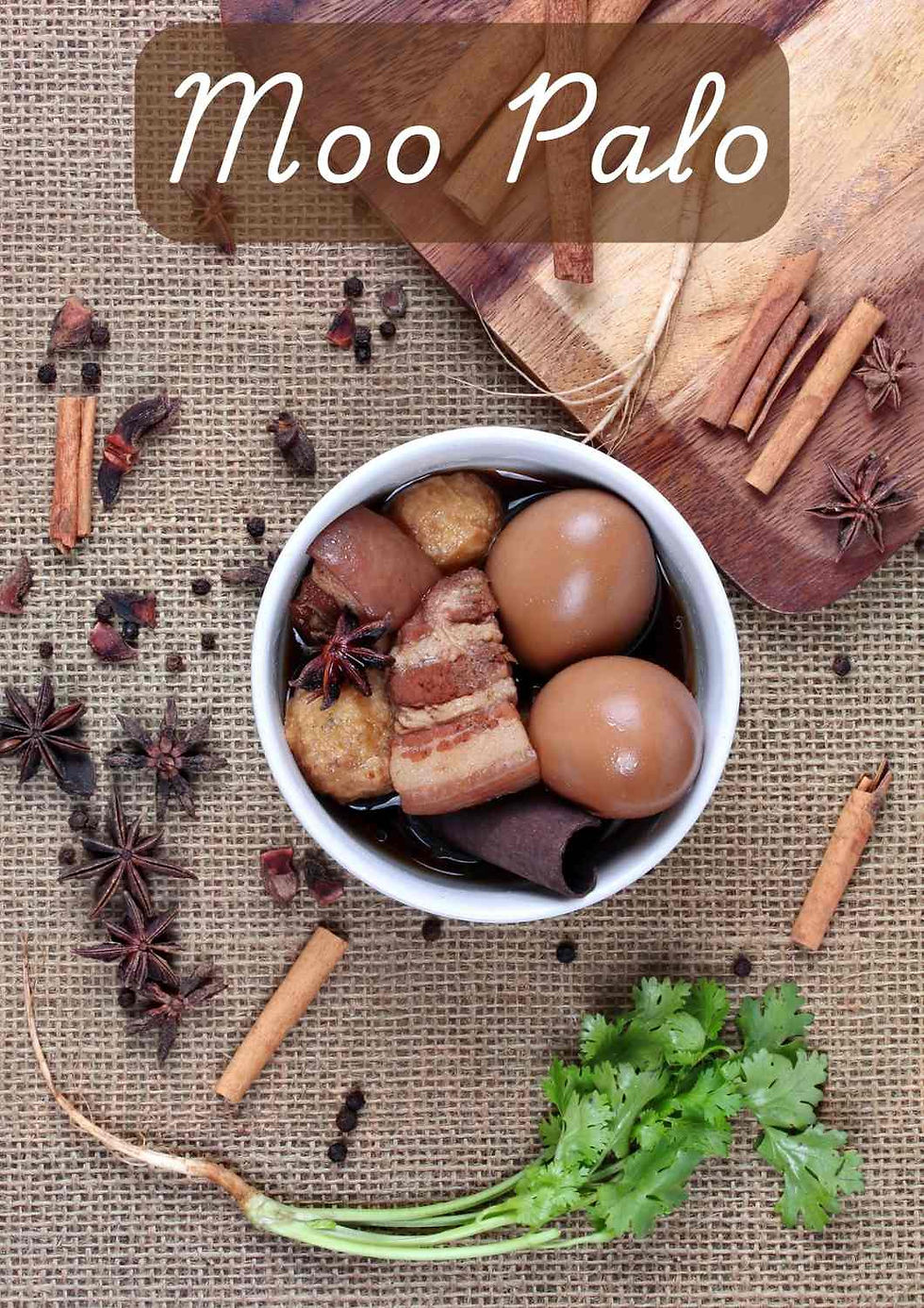Authentic Thai Moo Palo recipe: Braised pork belly, eggs and tofu
- Jan 8, 2017
- 2 min read
Updated: Sep 26, 2025

The Story Behind Thai Moo Palo Recipe
The Thai Moo Palo recipe (also called Moo Pa-Lo or Mu Palo) is a braised dish with Chinese roots that has become a comforting staple in Thai homes. Pork belly, hard-boiled eggs, tofu, and shiitake mushrooms are gently simmered in a fragrant soy-based broth with star anise and cinnamon.
This stew reflects the influence of Chinese Teochew migrants on Thai cuisine, where slow-braising techniques were blended with local seasonings. A unique element in the Thai version is the use of Sam Gler (“three friends”), a paste made from coriander root, garlic, and white pepper, which adds depth and distinguishes it from similar Chinese braises. Moo Palo is found all over Thailand, served with steamed jasmine rice, and versions of it can also be found in Taiwan, Singapore, and Malaysia.
Thai Moo Palo Recipe (for 2 people)
Ingredients
1 coriander root
2 garlic cloves
1 teaspoon white peppercorns
250 g pork belly, sliced
125 g tofu, cut into 2 cm cubes
6 medium-sized shiitake mushrooms
1 cinnamon stick (about 10 g)
2 star anise
2 hard-boiled eggs, peeled
1 tablespoon dark soy sauce
Seasoning:
500 ml water or chicken stock
3 tablespoons coconut sugar
3 tablespoons light soy sauce
½ tablespoon Chinese five-spice powder
½ teaspoon ground black pepper
Preparation
Make the paste: Pound the coriander root, garlic, and white peppercorns into a smooth paste.
Prepare mushrooms: If using dried shiitake, soak in hot water for 10 minutes, remove stems, and keep both mushrooms and soaking water.
Stir-fry: Fry the pork belly until some fat renders. Add the coriander paste, tofu, cinnamon stick, and star anise. Stir-fry for one minute.
Simmer: Add the mushrooms, their soaking water, stock, and seasoning. Simmer gently over very low heat for about 20 minutes.
Add eggs: Marinate boiled eggs in dark soy sauce for a few minutes, then add them. Simmer another 20 minutes until the pork is perfectly tender.
Serve: Enjoy your Thai Moo Palo recipe hot with steamed jasmine rice.
Why Moo Palo is so Popular
Moo Palo is not the kind of dish you usually order in a restaurant, unless it is a Chinese restaurant. In Thailand, it belongs to the world of street food. You will often find small stalls that specialise in this braised dish alone, or that serve it alongside other Chinese-inspired favourites such as Khao Kha Moo (soy-braised pork leg). It is especially common in local markets, both at lunchtime and in the evening. Moo Palo is rarely eaten for breakfast, it is a hearty meal that fits better at midday or later in the day. For many Thais, it is one of those comforting dishes, rich, fragrant, and always served with steamed rice.
Explore more Thai recipes with meat, fish and chilli sauce
If you enjoyed cooking this Thai Moo Palo recipe, discover more in our cookbook Meat, Fish and Chilli Sauce. With 50 authentic recipes, from stews to seafood to chilli sauces ("Nam Prik"), it will help you master the diversity of Thai cuisine at home.



Comments